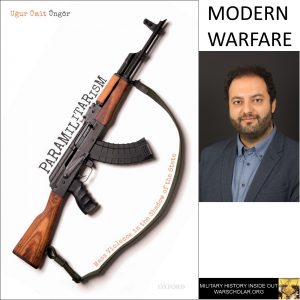Podcast: Play in new window | Download
Subscribe: RSS

Paul Dickson discusses the US Army in WWII
Check out this book here https://amzn.to/3lBmxRW
Interview Summary
Paul Dickson has written numerous books on American history ranging from WWII, to baseball, to the space program. He recently completed a book on the development of the US Army just before the start of WWII. We spoke about the book and how the United States was able to create such a large army in [the] a short period of time from 1940 to 1941.
(THE AUDIO PLAYER IS AT THE BOTTOM OF THE POST.)
0:45 – Paul talks about why he wrote a book about the development of the US Army before Pearl Harbor. He mentions the Louisiana maneuvers and MacArthur’s comments about the US Army.
5:18 – Paul talks about the layout of the book. He talks about Greenville Clark being instrumental in developing the US military. Greenville gained experience during WWI and wanted a draft for WWII. Greenville used Omar Bradley to lead a new OCS program.
13:17 – Paul talks about Marshall having to deal with low quality senior officers.
He also mentions the development of Army films under Frank Capra.
16:03 – Paul talks about how they filled the ranks of middle grade officers.
17:18 – Paul talks about management of the budget and logistics for this newly expanded Army. He also talks about Eisenhower’s comments about training logistics in the US.
21:45 – Paul talks about a major portion of his book dealing with attempts to integrate the Army.
25:45 – Paul talks about the training this new army did. He mentions Piper Cub aircraft. He talks about citizen-soldiers.
29:07 – Paul talks about the resources he used for his research. He mentions the Eisenhower Library and Pritzker Library.
31:09 – Paul talks about how enjoyable it was to figure out the story of how the citizen Army was created.
35:25 – Paul talks about the planned enlistment times. He also explains why they started enriching flour during WWII.
40:40 – Paul talks about all the people who helped him prepare the book.
44:25 – Paul talks about how people felt abut the Korean War.
46:28 – Paul talks about what was done to keep morale up. He gives examples of how the GI Bill helped veterans.
50:13 – Paul talks about the US Army Air Corps. He talks about Jimmy Stewart being rejected and then working towards getting into the Army. He also talks about the Tuskeegee Airmen.
56:45 – Paul can be found at pauldicksonbooks.com, on facebook, and on twitter.
Links of interest
https://groveatlantic.com/book/the-rise-of-the-gi-army-1940-1941/
http://www.pauldicksonbooks.com/
https://www.facebook.com/pages/Paul-Dickson/107581339271526
Contact Information
For more “Military History Inside Out” please follow me at www.warscholar.org, on Facebook at warscholar, on twitter at Warscholar, on youtube at warscholar and on Instagram @crisalvarezwarscholar. Or subscribe to the podcast on Apple Podcasts | Google Podcasts | Stitcher | Spotify Please see historyrabbithole.com for a list of my dozen or so blogs and podcasts. You’re sure to find something you like.
Guests: Paul Dickson
Host: Cris Alvarez
Tags: American history, Atlantic Monthly Press, audio interviews, books, Paul Dickson, podcast, United States, wwii,
Check out this book here https://amzn.to/3lBmxRW
As an Amazon Associate I earn from qualifying purchases.


